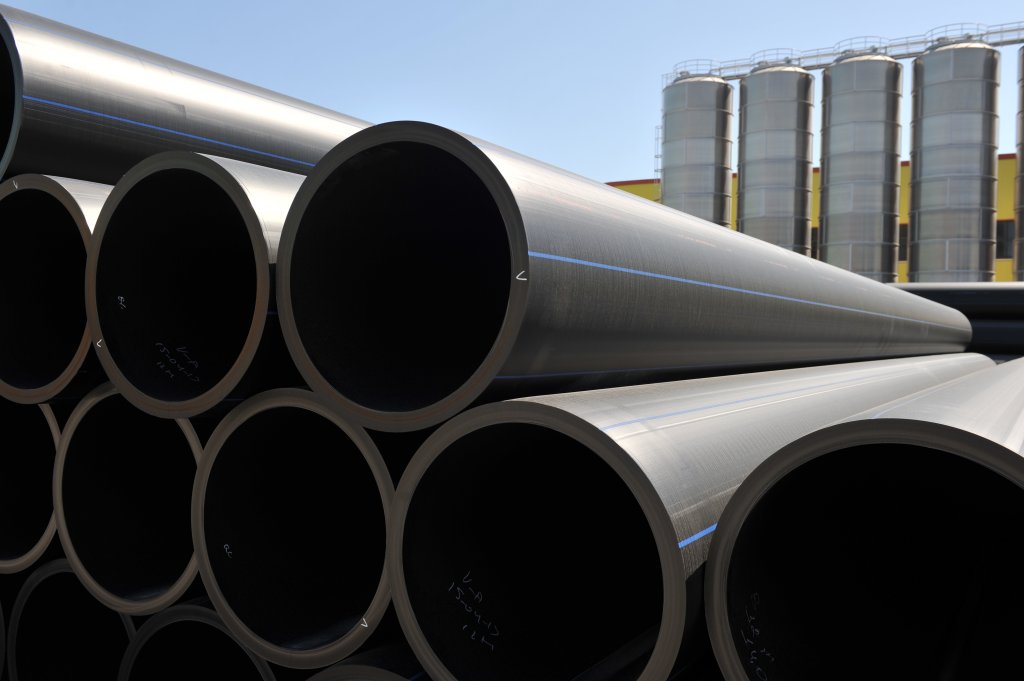Where Contractors Can Get Midland TX HDPE Pipe Fittings in Stock for On-Demand Needs
Comprehending the Key Conveniences of HDPE Pipeline for Water and Wastewater Management
Using HDPE pipe in water and wastewater monitoring offers countless advantages that merit factor to consider. Its phenomenal durability and lengthy life expectancy make it a recommended option for several tasks. In addition, the product's resistance to corrosion and chemical damages enhances its dependability in different settings. Nevertheless, the advantages extend beyond simply long life and resistance. Discovering its cost-effectiveness and ecological impact reveals even a lot more engaging reasons for its prevalent adoption in modern infrastructure
Exceptional Sturdiness and Durability

HDPE pipeline stands out for its remarkable sturdiness and long life, making it a favored option in water monitoring systems. Constructed from high-density polyethylene, these pipelines can hold up against considerable stress and anxiety, guaranteeing trusted efficiency with time. Their robust nature permits them to endure severe environmental problems, consisting of temperature level fluctuations and dirt activities, which can cause various other materials to fall short.
The life-span of HDPE pipelines often surpasses 50 years, offering an economical option for communities and markets alike. Furthermore, the product's light-weight residential properties simplify installation, minimizing labor prices and timeframes. This resilience decreases the need for frequent repairs or replacements, further improving its financial charm.
In water administration applications, the reliability of HDPE pipes indicates less disruptions and boosted service connection, making them important to sustainable facilities development. The combination of sturdiness and durability solidifies HDPE's duty as a foundation in effective water management options.

Resistance to Rust and Chemical Damage
While numerous products catch rust and chemical damage with time, HDPE pipes display remarkable resistance, making them excellent for various water management applications. This resilience originates from the molecular structure of high-density polyethylene, which is inherently non-reactive and does not rust like metals or break down from exposure to severe chemicals. As a result, HDPE is very reliable in settings with hostile materials, such as wastewater systems that may contain acids, bases, and organic solvents.
In addition, HDPE pipes can stand up to environmental elements such as soil acidity and saline problems, further boosting their suitability for diverse applications (American Plastics HDPE Pipe Manufacturing). Their capacity to maintain structural stability in time reduces the risk of leaks and failures, which is crucial in ensuring the security and dependability of water circulation and wastewater management systems. The resistance to corrosion and chemical damage considerably adds to the general effectiveness and durability of HDPE piping services.
Cost-Effectiveness and Economic Advantages
When thinking about the economic effects of water management systems, the cost-effectiveness of HDPE pipelines comes to be apparent. These pipelines offer lower installation and upkeep costs contrasted to traditional products like metal or concrete. Their lightweight nature simplifies transport and setup, leading to minimized labor expenditures. Additionally, HDPE pipes show a long life expectancy, frequently surpassing half a century, which converts to less substitutes and long-lasting cost savings.
Moreover, the resistance of HDPE to deterioration and chemical damages minimizes the requirement for pricey fixings and replacements. The pipelines likewise support reliable water flow, minimizing energy expenses connected with pumping systems. By alleviating leaks and water loss, HDPE pipelines contribute to substantial economic advantages for towns and sectors alike. In general, the preliminary financial investment in HDPE piping can generate considerable financial returns over the lifespan of the water monitoring system, making it a sensible choice for sustainable facilities development.
Ecological Sustainability and Minimized Influence

Convenience and Adaptability in Installation
As a result of their distinct properties, HDPE pipelines provide remarkable versatility and versatility in installment, making them appropriate for a large range of applications. Their light-weight nature enables for easier handling and transportation, reducing labor prices and installation time. HDPE pipelines can be curved and shaped to fit different surfaces and project needs, which is particularly beneficial in challenging atmospheres.
Additionally, their resistance to deterioration and chemical damages permits installation in diverse setups without the demand for specialized protective layers. The ability to fuse joints develops a continual, leak-free system, enhancing the general integrity and dependability of the installation. HDPE's versatility likewise accommodates ground motion, lowering the danger of damages in areas susceptible to moving soil. Generally, these characteristics make HDPE pipes not just functional but likewise a recommended option for water and wastewater administration systems.
Often Asked Inquiries
Just How Does HDPE Pipeline Compare to PVC in Water Administration Applications?
HDPE pipe provides exceptional versatility, resistance to rust, and resilience contrasted to PVC. Its lighter weight promotes much easier installment, while its lengthy life expectancy decreases substitute expenses, making HDPE a favored choice in water management applications.
What Is the Life-span of HDPE Water Lines Under Regular Conditions?
Under typical problems, HDPE pipes can have a lifespan varying from 50 to 100 years. Their resilience and resistance to deterioration add to their long-lasting efficiency in different applications, making them a trusted option for infrastructure.
Are HDPE Piping Recyclable After Their Life Span?
Yes, HDPE pipelines are recyclable after their life span. Pipe Supplier American Plastics Midland. They can be refined and repurposed into new products, substantially minimizing environmental impact and promoting sustainability within the sector, making them an environment-friendly selection for piping options
What Is the Installment Process for HDPE Water Lines?
The installment process for HDPE pipes entails site prep work, trenching, pipe blend or read what he said mechanical signing up with, backfilling, and stress testing. Proper strategies ensure a sturdy and reliable system for transferring water and wastewater efficiently.
Can HDPE Piping Be Made Use Of for Both Potable and Non-Potable Water Equipments?
Yes, HDPE pipelines can be made use of for both potable and non-potable water supply. Their flexibility, durability, and resistance to corrosion make them suitable for various applications, making certain risk-free and reliable transportation of elbow pipe water in various contexts.